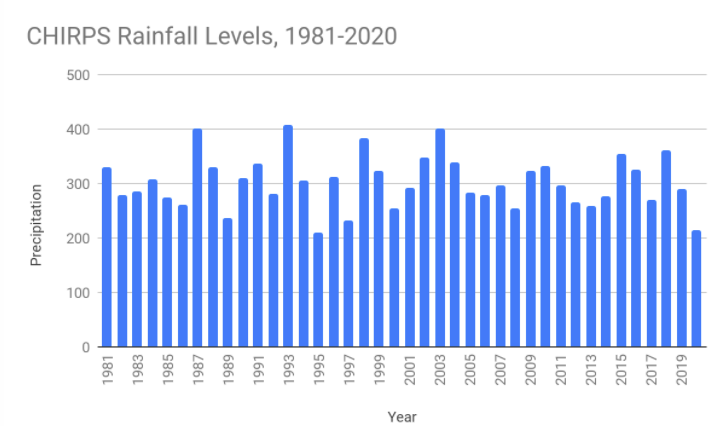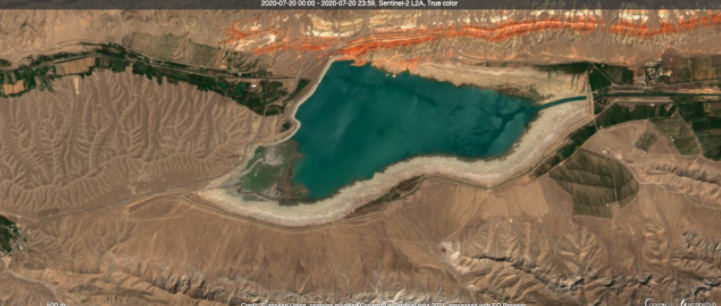
Dozens were killed after clashes between Kyrgyzstan and Tajikistan in April, the most violent confrontation in years.
A disputed border and local politics are often described as being at the root of tensions. But is changing climate also playing a role? bellingcat.com/resources/case…
A disputed border and local politics are often described as being at the root of tensions. But is changing climate also playing a role? bellingcat.com/resources/case…
Data indicate less rainfall, lower ground temperature, and poorer vegetation health in the year preceding the clashes.
While this doesn't suggest climate or water availability was the sole cause of April’s crisis, it is a correlation which warrants serious scrutiny.
While this doesn't suggest climate or water availability was the sole cause of April’s crisis, it is a correlation which warrants serious scrutiny.
An analysis remote sensing data shows that just a few years of disruptions to the climate on the Kyrgyz-Tajik border has decreased water availability, hurt agricultural yields and increased plant stress.
For example, seasonal rains that feed the Torktul Reservoir, which farming communities on both sides of the border rely on, fell to their lowest levels since 1995 last year. 

As a result of this dry period, water levels in the Tortkul Reservoir diminished significantly. This change can be seen on satellite imagery (left July 2018, right July 2020). 



Sentinel 2 imagery taken around harvest time in October 2018, 2019, and 2020 also show a drop in vegetation moisture. In the GIF image below, dark blue denotes more moisture and red less.
Less moisture in crops increases plant stress, which reduces farm productivity and can lead to pests, diseases, and crop failure.
Data for cross-border agricultural region does show a few years of steady vegetation health and, surprisingly, a few years of vegetation growth. However, this is followed by a steep drop in 2020. 

Landsat 8 time-lapse imagery corroborates the apparent decline in agriculture between 2019 and 2020. Two images, taken a year apart, show thick, dense fields in 2019 followed by sparse, patchy land in 2020.
From the data, it seems clear that environmental changes could create structural issues for local agriculture in the long term, exacerbating the potential for further disputes as resources dwindle.
While this may not have been the source or single spark that set off April’s clashes, it is another factor worth monitoring closely given existing tensions in the region
Read the full article: bellingcat.com/resources/case…
Read the full article: bellingcat.com/resources/case…
• • •
Missing some Tweet in this thread? You can try to
force a refresh






